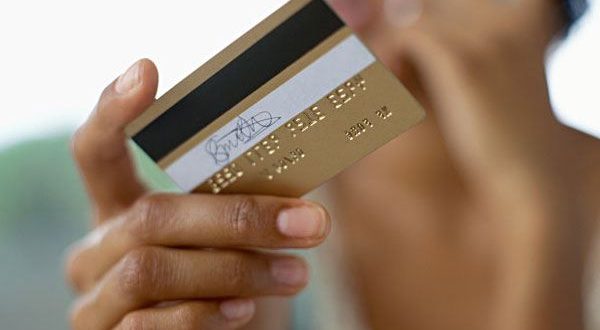
Alleged fraud involving more than $3m on business credit card

A 40-year-old man has been charged with fraud after police allegedly seized $3 million worth of property – including wines, food, office supplies and cleaning products – they say he had stashed in warehouses across Sydney.
In January last year, police allegedly found a large amount of fraudulently obtained goods in a warehouse in Old Guildford in Sydney’s west and set up Strike Force Traver.
During the long investigation, millions of dollars worth of property were allegedly discovered at several warehouses across Sydney.
Police believe the items were bought illegally through a business using a credit card but never paid for between October 2010 and January 2011.
The man was arrested in Silverwater on Friday. He was charged with 27 counts of fraud, refused bail and will appear in Parramatta Local Court today.
Strike Force Traver, involving Fairfield local police, will continue their investigations.
Anyone with information should call Crime Stoppers on 1800 333 000.
(Source: Esther Han, SMH, 13 October 2012)

Fraud – What do you do when it strikes your business?
Fraud is a fact of life and if you are in business it’s only a matter of time until you are forced to deal with it. Andrew Firth, a forensic accountant in Sydney explains what to do.
If you are dealing with employee fraud then the first step is to identify what electronic devices could contain potential evidence. The employees’ computer, laptop, phone, PDA, or Blackberry may contain information that is useful to the subsequent investigation. If the computer is turned on, most people will be tempted to go through the computer looking for information.
The first thing to do is to instruct relevant people not to touch the computer and to consult a forensic accountant or forensic technology professional. If you need to shut the computer down, then close any documents whilst taking notes of what you are doing. You will need to secure the computer to prevent unauthorised access. Take the computer and lock it in a secure cabinet or office until it can be passed to a forensic professional. Always take notes of what you have done including dates and times. Also remember to secure any other corporate devices of the individual concerned e.g. PDA and Phones. Remember not to use the devices simply turn them off until professional advice can be sought.
How do you handle documents that may be relevant to the fraud investigation? The first rule is not to write, mark or otherwise handle the document. Secure the documents in a safe place until a forensic accountant can be consulted. Also take notes of what you do as these will be important in establishing the chain of evidence in potential court proceedings.
In many corporate environments there will be pressure from management to use the computer or device particularly if its needed for customer or client operational needs. If this is the case, then the computer and other devices need to be forensically imaged by a forensic technology professional and the image of the device can be provided to management. The original device is secured and should not be used until all court proceedings have been exhausted. Your forensic accountant can organise for a forensic technology professional to be engaged to perform these tasks.
Forensic accountants also find that email systems are a critical source of information when investigating employee frauds. The suspects email inbox and other folders need to be forensically captured. Email on company back up tapes can also be used to identify correspondence and documents at different points in time. A Forensic accountant or forensic technology professional will be able to advise you on capturing the emails successfully.
The next common occurrence in organisations is that people think it’s a good idea to confront the suspect and to “interrogate’ them. Interviews with the suspect should not occur unless advised by legal counsel who is familiar with employee fraud. It’s critical that contact with the suspect is minimised until you know what you are dealing with. Again bringing in a forensic accountant to essentially project manage the investigation will ensure that potential evidence is protected and legal and other advice is obtained when appropriate.
Many organisations are reluctant to bring in forensic accountants as they are concerned that the matter may be adversely reported in the media. In our experience we find that the use of a forensic accountant can minimise the risks involved and can provide crucial advice to the organisation. In many instances, a forensic accountant can recover funds that have been defrauded and liaise with legal counsel, the police or other law enforcement bodies if needed. Above all we find that the use of an expert forensic accountant can quickly minimise the impact of a fraud, recover the funds and really manage the issue until resolution. Fraud investigation has many commercial, legal and regulatory issues and the timing and sequence of activities can have an important effect on the outcome of the matter. Many large corporations also draft a formal corporate policy which documents how an investigation needs to be conducted. These are useful documents as they clearly delineate the responsibilities of Human Resources, Internal Audit, Legal, and the Finance departments.
About the Author
Andrew Firth is a Forensic Accountant in Sydney and Director of Rushmore Forensic. He has over 12 years experience in financial investigations, corporate intelligence and other aspects of forensic accounting. Andrew is a former investigator with the Serious Fraud Office in the UK. He has also worked for KPMG and Deloitte during his career. Andrew is based in Sydney and provides forensic accounting services throughout Australia, New Zealand and South East Asia. If you have a matter which requires expert advice, please don’t hesitate to contact Andrew Firth for a complimentary and confidential discussion.
Key points to remember when dealing with people in business
Key points to keep in mind when dealing with people in business:
- Be particularly careful if you are approached by someone, rather than you being recommended to the person by someone you trust.
- Doing business in an overseas country makes you vulnerable to fraudsters and scammers.
- If it sounds too good to be true it probably is!
- Ask to be taken around the business, and meet the staff. Be on alert if you only ever deal with one person in “the company” – maybe that’s all there is!
- Keep asking questions and checking the facts.
- Something as simple as an email address that does not work could be a clue that you are dealing with a fraudster
Always seek the advice of an expert Forensic Accountant. An expert Forensic Accountant can help you assess the situation and even recover money that you have invested.
Who are signing the cheques in your business?
The recent announcement that a Queensland property developer was imprisoned for 3 years for forging cheques (ASIC press release 09-89AD) is a timely reminder that all companies should review their cheque handling processes.
So what are some simple actions that you can take to ensure that you don’t have the same problem?
1. Check who the current cheque signatories are for each bank account in the business. Are these signatories up to date and appropriate given the current duties of each signatory? Do appropriate segregation of duties exist between the key people in the cheque payment process?
2. Are the cheques held in a secure place before they are mailed out?
3. Are bank reconciliations conducted regularly and differences isolated and reviewed. In many frauds we have investigated, a significant portion of frauds would have been detected earlier and the losses minimised if the bank reconciliations were properly conducted. In small to medium sized companies, we recommend that the Managing Director review the bank reconciliation on a monthly basis to ensure that this key process is done and there are no unreconciled differences.
Whilst the above controls are simple things that can be done immediately checked, the cheque payment process is just one of many processes where money can leak out of your business.
Over the coming weeks we will look at some other key areas to look out for.

